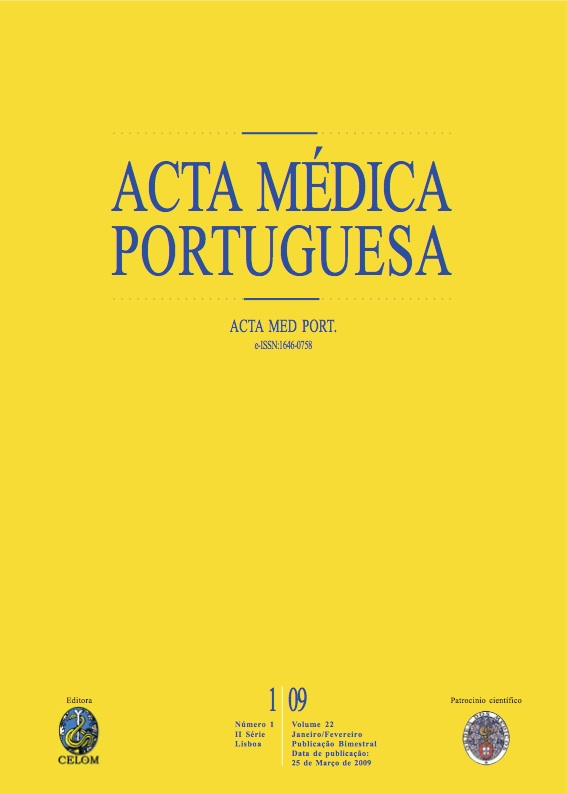Amyloidosis and the respiratory tract.
DOI:
https://doi.org/10.20344/amp.1678Abstract
Amyloidosis is a disease of protein metabolism characterized by the deposition of amyloid substance in several organs. Several types of amyloid protein exist and one of the possible classifications is primary, secondary or hereditary amyloidosis, based on the type of protein involved and whether there is another condition that leads to amyloidosis. One can also classify amyloidosis as localized or systemic. The authors present four cases of amyloidosis limited to the respiratory tract and revise this entity, its forms of presentation (tracheobronchial, nodular--solitary or multiple, and diffuse septal-alveolar), methods of diagnosis and of searching the systemic entity. The most important differential diagnosis is with neoplastic diseases; therefore a definite diagnosis is important as lung amyloidosis usually is a benign and indolent condition.Downloads
Downloads
How to Cite
Issue
Section
License
All the articles published in the AMP are open access and comply with the requirements of funding agencies or academic institutions. The AMP is governed by the terms of the Creative Commons ‘Attribution – Non-Commercial Use - (CC-BY-NC)’ license, regarding the use by third parties.
It is the author’s responsibility to obtain approval for the reproduction of figures, tables, etc. from other publications.
Upon acceptance of an article for publication, the authors will be asked to complete the ICMJE “Copyright Liability and Copyright Sharing Statement “(http://www.actamedicaportuguesa.com/info/AMP-NormasPublicacao.pdf) and the “Declaration of Potential Conflicts of Interest” (http:// www.icmje.org/conflicts-of-interest). An e-mail will be sent to the corresponding author to acknowledge receipt of the manuscript.
After publication, the authors are authorised to make their articles available in repositories of their institutions of origin, as long as they always mention where they were published and according to the Creative Commons license.









